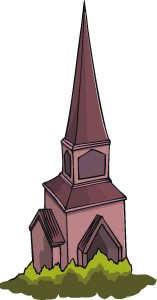Israel to Be Lost Among the Gentiles
Deuteronomy 29:28 states, “And YHVH rooted them out of their land in anger, and in wrath, and in great indignation, and cast them into another land [Heb., eretz acheret], as it is this day.” How did the ancient Jewish sages understand this passage?
Rabbinic Commentary on this Verse
b. Talmud, Yevamot 17a (c. 500 C.E.) (Soncino Talmud, Soncino):
[T]hey had declared them [i.e., the ten tribes of Israel, see rabbinic footnote below]19 to be perfect heathens [or gentiles]; as it is said in the Scriptures, “They have dealt treacherously against YHVH, for they have begotten strange children.20”
Rabbinic footnote on this passage states, “(19) The ten tribes; (20) Hos. 5:7.”
The ArtScroll Tanach Series Bereishis/Genesis (an Orthodox Jewish commentary on Genesis) states, regarding Genesis 48:19, Orthodox Jewish sage of the Middle Ages, Ibn Ezra wrote:
Many nations will descend from him [Ephraim]. That is, the word, fullness, melo, connotes “abundance,” the phrase meaning: and his seed will become the abundance of the nations (Neter; Karnei Or)” (p. 2121). According to Radak [R. Dovid Kimchi Torah scholar in the Middle Ages], “This refers to the Exile when the lands of others will be filled with his scattered descendants. See also Hosea 7:8: Ephraim shall be mingled among the nations (Ibid.).
Eretz Arazreth: Hebrew For Another Land or New World (?) to Which Israel Migrated
The apocryphal book of 2 Esdras 13:40–45 (elsewhere known as The Fourth Book of Ezra; quoted from Lange’s Commentary; bracketed phrases are from an alternate translation by James H. Charlesworth in his book entitled, The Old Testament Pseudepigrapha—Apocalyptic Literature and Testaments); Two Esdras is a Jewish work written near the beginning of the Christian era,
[T]hese are the ten tribes, which were carried [led] away prisoners out of their own land [into captivity] in the time of Josia[h] the king, whom Salmanasar king of Assyria led captive, and carried them over the river, and they were brought over into another land. But they took this counsel [formed this plan] amongst themselves, that they would leave the multitude of the heathen [nations], and go forth into a further country [a more distant region], where mankind never dwelt, that they might there keep their own statutes, which they had not kept in their own land. But they entered into Euphrates by the narrow passages of the river; for the Most High then wrought signs for them, and held still the waves [stopped the channels] of the river, till they had passed over. But through that country there was a long journey to make of a year and a half; and the same region is called Arazreth [Hebrew for “another land”].
Azareth or another land is a reference to the prophecy in Deuteronomy 29:28 that states, “And YHVH rooted them out of their land in anger, and in wrath, and in great indignation, and cast them into another land [eretz acheret], as it is this day.” Acheret in the Hebrew means “another,” but also has the connotation of “new” such as “next year” (or in the new year, Gen 17:21), “another well” (Gen 26:21); “another man” (i.e., a new husband); and so on. Other Hebrew words for new include chodesh or chadashah, which can mean either “brand new” or “renewed” such as in new moon, new heart, or new heaven and new earth. Other Hebrew words found in Scripture referring to something new would be in reference to new wine or new fruits, which are unique Hebrew words which specifically describe those things and nothing else. The only other Hebrew word used in Scripture for new is beriyah and it is used once in Numbers 16:30 to describe the earth opening up to swallow Korah and his malcontents. The point of this brief word study is that Eretz Acheret can justifiably be translated into English as “new earth,” or “new world” “The term New World is a common historical reference to what geographical region? It was there that Scripture would seem to indicate that the Israelites would, in part, at least, be scattered and the Jewish writings of 2 Esdras 13:40-45 make reference to this land or New World.







